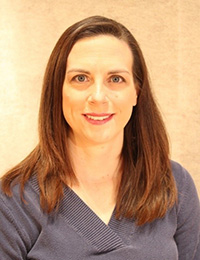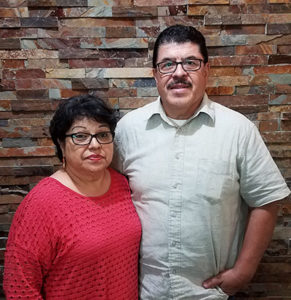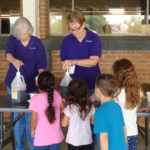FORT WORTH—Something in machines has sparked Juan Salinas’ curiosity since he was child.
“I remember taking my dad’s car stereo apart, and when he got mad, I just put it back together,” said Salinas, now an 11th grader at North Side High School in Fort Worth.
Salinas is part of the growing robotics and engineering program at North Side High School, led by the engineering teacher and robotics coach, Eddy Finegan, and supported by Roca Viva Church in Fort Worth.

Finegan coaches students for competitions, just like an athletics coach would prepare a team for a game. She says that is a factor that needs to increase in these kinds of programs.
“It would be great to see people stand behind this, like they stand behind a football team,” Finegan said.
In an area Finegan says is “underrepresented,” she has been able to see what the support of a community can do when they stand behind programs of robotics and engineering.
Church addresses need in community
Last year, Roca Viva Church in Fort Worth became one of the supporters of North Side’s robotics and engineering program. Along with other organizations and companies, like Lockheed Martin and the Fort Worth Hispanic Chamber of Commerce, Roca Viva has seen the potential this program will have for the students in the area.

Elisa Cardenas Salazar, a consulting systems engineer with a railway company and a member of Roca Viva, saw the need in the community and led the church to address it.
Pastor Lorenzo Perez noted the church typically tries either to respond to the needs of people or to help connect them to those who can do something. This time it was a little bit of both.
Sign up for our weekly edition and get all our headlines in your inbox on Thursdays
Even though Roca Viva has few members who are engineers, they know they still can do a lot. Roca Viva had shirts made for North Side’s team last year. And when the team has needed to buy tools or equipment, Roca Viva has chipped in.
“This is how it can work,” Finegan said. “People with expertise can help by mentoring, and people with no expertise can help with funding.”
Students pursue dreams
For Salinas, this program gives him an opportunity to do what he enjoys and perhaps an opportunity to pursue his dream of going to college and open an auto shop to help people with their cars.
In a time when college degrees are now a basic expectation in the work force, Salazar pointed out this program can make college an attainable option. Still, she says they tell students they have to do their best.
“We do not say college is a free-ride,” said Salazar. “We tell them, ‘You are going to have to work hard for it.’”
Opens doors to opportunities
And the investment has paid off, according to Finegan.
“Last year, 10 out of the 11 students (involved in the program) went to college,” she said.
Robotics programs elevate students as they seek acceptance into college and apply for scholarships, she added.
Much like athletic programs, students get to practice something they like to do, and it also opens the door to more opportunities.
But in a general sense, robotics and engineering are in greater demand in everyday life than programs like football, or track. That is why Roca Viva supports North Side and has helped to start a similar program at Diamond Hill-Jarvis High School.

“We want to help students have a vision for the future,” said Perez.
Learning to solve problems
There are problems that need to be solved every day, and Finegan said these programs help students think more creatively to solve those problems.
In a society that expands its use of technology daily, programs like this need to start with students at a much younger age, she suggested.
For that reason, Salazar said, Roca Viva also is partnering with Fort Worth Hispanic Chamber of Commerce to help replicate this program in other schools and with younger students.
“This program can start with kids just using Legos,” she said. “Eventually you can work your way up to electrical and mechanical engineering.”
North Side High School now has two teams. This year, the school also started a robotics club open to students of all grades.
The school’s teams, composed mostly of seniors, each build a robot that can complete a series of tasks, like launching, stacking or moving objects from one location to another.
Finegan hopes robotics one day will be a prestigious program, but she is aware “this needs to be an effort of more than just one teacher.”
“It takes the support of the community,” Finegan said. “If a church wants to get involved (in a program like this one), they probably do not have to look very far to see where they can help.”
That’s why Roca Viva is part of helping schools give students a better future, because “this is the way the body (of Christ) is meant to function,” Salazar said.
This is part of an ongoing series about how churches can support public education and the common good. Substantive coverage of significant issues facing Texas Baptists is made possible in part by a grant from the Prichard Family Foundation.
Read more articles like this in CommonCall magazine. CommonCall explores issues important to Christians and features inspiring stories about disciples of Jesus living out their faith. An annual subscription is only $24 and comes with two free subscriptions to the Baptist Standard. To subscribe to CommonCall, click here.















We seek to connect God’s story and God’s people around the world. To learn more about God’s story, click here.
Send comments and feedback to Eric Black, our editor. For comments to be published, please specify “letter to the editor.” Maximum length for publication is 300 words.